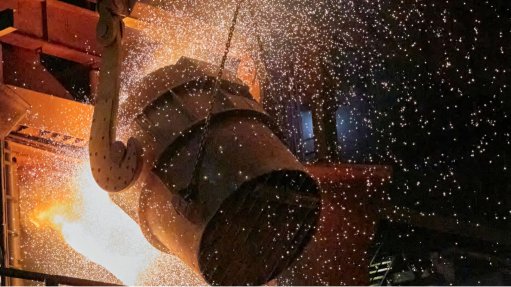I owe, I owe – the sequel
Over the 21 years of writing this column, there has been the odd temptation to simply resubmit an earlier instalment because, in South Africa, the more things change, the more they remain the same.
It took immense willpower to resist the latest temptation, and that was when, on June 13, the National Treasury published a media release titled ‘New Financing Agreement to Boost South Africa’s Covid-19 Vaccination Programme and Health System’. Interestingly, in the opening paragraph, it mentions ‘loan’. So, a ‘new financing agreement’ is actually a loan. Why not say so in the headline?
Let me refer you to the instalment of this column which was published on February 11 and was titled ‘I owe, I owe’. To avoid repetition, you might want to read the column as a prequel, after which you could judge whether the prequel was better than the sequel. Then you might want to say a silent prayer that there would not be another sequel and, even worse, that it turns into a full-blown franchise. Spoiler alert; expect Part III, which at this rate might well arrive in time for summer.
The June 13 media release was, as was the case with the one published on January 21, a joint World Bank and National Treasury release and stated in the opening paragraph: “Today, the World Bank Group board of executive directors approved €454.4-million (R7.6-billion or $480-million) loan for South Africa’s Covid-19 emergency response project. The loan comes following a request by the government of South Africa for assistance in financing vaccine procurement contracts. Specifically, this project will retroactively finance the procurement of 47-million Covid-19 vaccine doses. South Africa is the epicentre of the Covid-19 pandemic in Africa, with the highest cumulative numbers of infections and deaths.”
The opening paragraph of the January 21 media release read: “The World Bank Group board of executive directors today approved South Africa’s request for a $750-million development policy loan. This loan will support the government of South Africa’s efforts to accelerate its Covid-19 response, aimed at protecting the poor and vulnerable from the adverse socioeconomic impacts of the pandemic and supporting a resilient and sustainable economic recovery.”
Pause for a minute and consider the two opening paragraphs. What are the differences or similarities? On the positive side, at least South Africa does not confine itself to borrowing in US dollars, with the recent loan being in euros. If you are taking notes, it is not really a positive; however, I promised my mother many years ago that I will always seek to find a positive, no matter how dire the situation may be.
If you are in no mood to read the earlier column, let me point out the following: in July 2020, the International Monetary Fund (IMF) extended a financial ‘lifeline’ of $4.3- billion, roughly R65-billion, to South Africa. On January 21, the World Bank announced that it was providing South Africa with a loan of $750-million, or roughly R11.5-billion. Add to this the World Bank’s €454.4-million, or R7.6-billion, loan. But that’s not all. What tends to be omitted is that the loans attract interest – not only from economic commentators but also, more importantly, in the form of the monetary payments that need to be made in addition to the loan amount.
Let me acknowledge my self-plagiarism of the earlier column, in which I wrote: “The IMF in the Article IV Mission, published on December 8, 2021, called on government to introduce a ‘credible public debt anchor’, which is defined as a government’s goal not to surpass a predefined debt ceiling over time” (see the column of February 4, titled ‘Déjà vu, all over again’).
Let’s be clear: a loan is a form of debt, no matter how government or its lenders want to spin it.
Article Enquiry
Email Article
Save Article
Feedback
To advertise email advertising@creamermedia.co.za or click here
Announcements
What's On
Subscribe to improve your user experience...
Option 1 (equivalent of R125 a month):
Receive a weekly copy of Creamer Media's Engineering News & Mining Weekly magazine
(print copy for those in South Africa and e-magazine for those outside of South Africa)
Receive daily email newsletters
Access to full search results
Access archive of magazine back copies
Access to Projects in Progress
Access to ONE Research Report of your choice in PDF format
Option 2 (equivalent of R375 a month):
All benefits from Option 1
PLUS
Access to Creamer Media's Research Channel Africa for ALL Research Reports, in PDF format, on various industrial and mining sectors
including Electricity; Water; Energy Transition; Hydrogen; Roads, Rail and Ports; Coal; Gold; Platinum; Battery Metals; etc.
Already a subscriber?
Forgotten your password?
Receive weekly copy of Creamer Media's Engineering News & Mining Weekly magazine (print copy for those in South Africa and e-magazine for those outside of South Africa)
➕
Recieve daily email newsletters
➕
Access to full search results
➕
Access archive of magazine back copies
➕
Access to Projects in Progress
➕
Access to ONE Research Report of your choice in PDF format
RESEARCH CHANNEL AFRICA
R4500 (equivalent of R375 a month)
SUBSCRIBEAll benefits from Option 1
➕
Access to Creamer Media's Research Channel Africa for ALL Research Reports on various industrial and mining sectors, in PDF format, including on:
Electricity
➕
Water
➕
Energy Transition
➕
Hydrogen
➕
Roads, Rail and Ports
➕
Coal
➕
Gold
➕
Platinum
➕
Battery Metals
➕
etc.
Receive all benefits from Option 1 or Option 2 delivered to numerous people at your company
➕
Multiple User names and Passwords for simultaneous log-ins
➕
Intranet integration access to all in your organisation
















